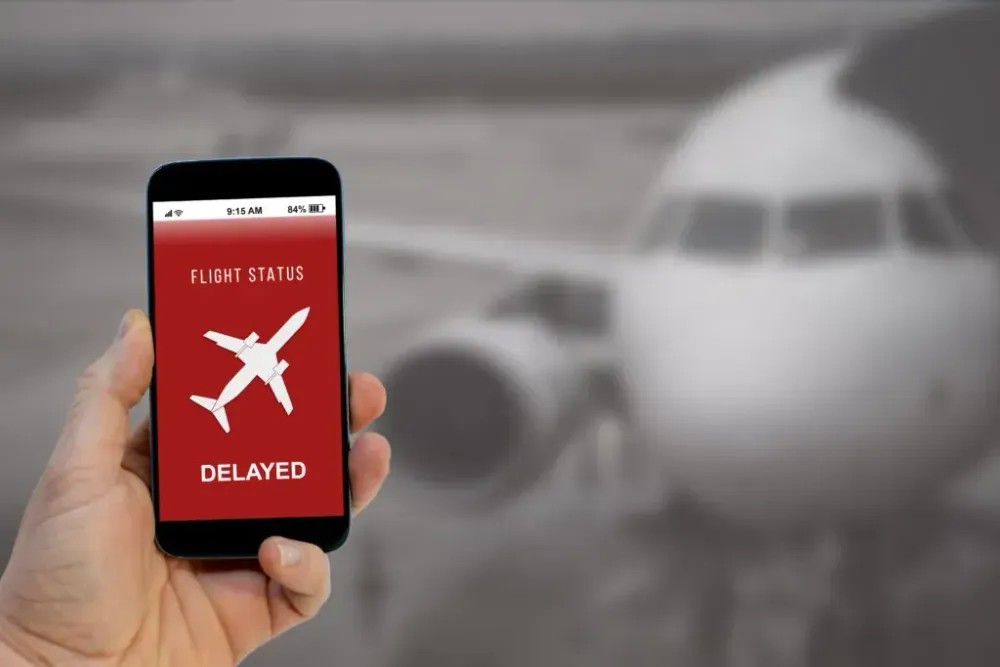Flight delays are a common source of travel frustration. Whether you’re a seasoned jet-setter or an occasional flyer, understanding why your flight is delayed can significantly impact your travel experience. Knowing the reasons not only helps manage your expectations and plan accordingly but also informs you about potential compensation from the airline. Instead of simply waiting in frustration, knowing the cause empowers you to decide whether to wait it out or explore alternative flight options.
Common Reasons Behind Flight Delays
Several factors can contribute to flight delays. Airlines and airports work diligently to minimize disruptions, but some issues are unavoidable. Here are some of the most frequent reasons you might find yourself waiting at the gate:
Weather Conditions
Adverse weather is a primary cause of flight delays. This isn’t limited to the weather at your departure or arrival airports. Severe weather in connecting cities or along your flight path can also lead to delays. Conditions like thunderstorms, heavy snow, fog, and strong winds can make flying unsafe, leading to ground stops – where no aircraft are permitted to take off or land at an airport – or significant delays. In these situations, changing flights might not be helpful if the weather system is widespread. However, if the weather issue is isolated to your connecting airport, re-routing through a different city with clear skies might be a viable option.
Mechanical Issues
Aircraft are complex machines, and unexpected mechanical problems can arise. These can range from minor repairs to more significant issues requiring extensive maintenance. Airlines prioritize safety above all else, so any mechanical concern, no matter how small it seems, will be addressed before a flight is cleared for departure. Delays due to mechanical issues are generally considered within the airline’s control.
Crew Shortages and Scheduling
Airlines operate on tight schedules, and disruptions can have a ripple effect. Crew shortages, whether due to illness, unforeseen circumstances, or scheduling conflicts, can lead to delays. Similarly, if the incoming aircraft for your flight is delayed at its previous destination, your flight will inevitably be delayed as well. These are also often categorized as controllable delays by airlines.
Air Traffic Control (ATC) Issues
Air traffic control manages the flow of aircraft in the sky to ensure safety and efficiency. Congestion in the airspace, equipment malfunctions at ATC facilities, or staffing issues can all lead to system-wide delays. These delays are often outside the direct control of individual airlines.
Airport Congestion
Especially during peak travel times, airports can become congested. This can lead to delays in taxiing, takeoff, and landing, as well as gate availability issues. Busy airports may experience longer turnaround times between flights, impacting departure schedules.
 Frustrated passenger checking flight delay notification on smartphone. Understanding why your flight is delayed is important for travel planning and compensation.
Frustrated passenger checking flight delay notification on smartphone. Understanding why your flight is delayed is important for travel planning and compensation.
How to Find Out the Reason for Your Flight Delay
Knowing the reason for your flight delay is more than just satisfying curiosity; it can be crucial for understanding your rights as a passenger and making informed decisions about your travel plans. Here are effective ways to find out why your flight is delayed:
Ask the Gate Agent
If you are at the airport when the delay is announced, the gate agent is your most direct source of information. They usually have real-time updates and can provide the specific reason for the delay. Don’t hesitate to approach the gate agent counter and politely inquire about the cause of the delay and expected duration.
Check Airport Alerts – FAA Website
The Federal Aviation Administration (FAA) provides a public website (https://www.fly.faa.gov/) that displays real-time airport status information. This includes active airport events such as ground delays and ground stops. By checking the FAA website, you can get a broader picture of any airport-wide issues that might be affecting your flight. The site often provides details on the timeframe of delays, the probability of extensions, and the average delay duration.
Track Your Inbound Flight
Often, a flight delay is caused by the late arrival of the inbound aircraft – the plane scheduled to become your flight. Websites like FlightAware (https://flightaware.com/) allow you to track your flight and see the status of the inbound plane. Simply enter your flight number, and you can find information on where your aircraft is coming from and if its previous flight is delayed. This can give you a realistic indication of whether your flight will depart on time.
Consult the Airline’s App or Customer Service
While not all airlines proactively display delay reasons on their websites, many airline mobile apps now provide delay notifications and sometimes include the reason for the delay. Check your airline’s app for flight status updates. Alternatively, contacting the airline’s customer service by phone can provide you with detailed information about your specific flight delay. Be prepared to provide your flight number and booking details when you call.
Understanding Your Rights and Compensation
The reason for your flight delay is directly linked to your potential rights for compensation and assistance from the airline. According to the U.S. Department of Transportation (DOT), airlines are generally obligated to provide compensation, such as meal vouchers or hotel accommodations, for “controllable delays”. These are delays caused by issues within the airline’s control, such as maintenance problems, crew shortages, or baggage loading issues.
However, delays deemed outside the airline’s control, like those caused by severe weather or unexpected air traffic control issues, typically do not require airlines to provide compensation. To understand your airline’s specific policies and what they are obligated to provide in case of a controllable delay or cancellation, you can visit the DOT’s Airline Cancellation and Delays Dashboard (https://www.transportation.gov/airconsumer/airline-cancellation-delay-dashboard).
By understanding the common reasons for flight delays and knowing how to find out the specific cause of your delay, you can navigate travel disruptions more effectively, manage your expectations, and be informed about your passenger rights.